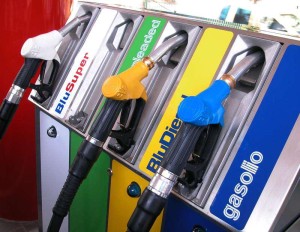It 'was recently published in the series "Issues of Economics and Finance" of Bank of Italy, un paper, made by the two analysts Alessandro Mistretta and Ivan Faiella, who has reviewed the effects of the reduction in oil prices on energy expenditure and economic activity.

“In the second part of the 2014, It reads the document, the price of oil on international markets has fallen by half, reaching 50 dollars per barrel at the end of the year, remaining at just over 60 in mid-May 2015”.
According to their simulations families would benefit from a savings on fuel (direct effect) equal to 2,1 billion euro per year (80 EUR average per household) which 1,8 designed to increase consumer spending.
To evaluate the aforementioned direct effect, the authors have used the information on household spending on fuel, available in the survey on household consumption Istat (ICF): between 1997 and 2013, the incidence of this item on the total expenditure was between 5 and 5,5 percent.
These greater resources that do not benefit third of poor families, that does not spend nothing for gasoline or diesel fuel, why not own vehicles. From the point of view of the characteristics of the families, the greatest benefit would go to couples with two children, with a gain equal to twice that of the average (161 €) who appropriate it by almost a third of the two billion total (while less of 7 percent of households).
Given the scenario of lower fuel prices, the authors believe that it could be an opportunity to establish a carbon tax that, in addition to being a tool for achieving emission reductions in the transport sector, provide resources for weight reduction on electricity bills of the financing of renewable energy sources, highly regressive, thus benefiting also the segment of the population that does not have spending fuels.
Points of view, but you have to start somewhere.
Alex Gaetani